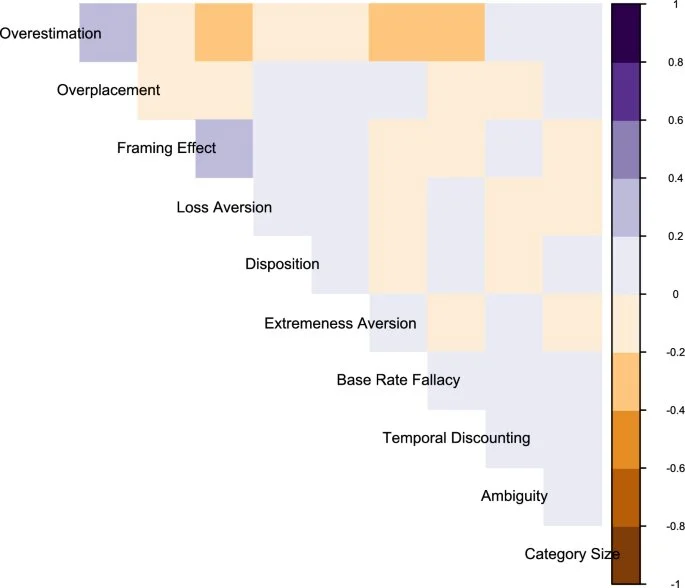A lot of people probably already knew this, but it’s useful to have studies like this to shove in the face of the “pull yourself up by your own bootstraps” crowd. It’s frustrating because we can change this, we don’t have to accept a society that simply revolves around “Whoever makes the most money gets to make the rules”.
I, personally, would like a society that cherishes camaraderie and compassion while also rewarding innovation and talent. There are too many people who believe in this zero-sum game that seems to pit everyone against everyone in this race to gather the most wealth; this is why we’re all struggling, because rich people have gathered the most wealth, and they are trying to protect it at all costs by using the wealth to control the rules that control how they gained the wealth to begin with. It’s all awful and we need to change it now.
I would challenge that any society which has any significant amount of wealth disparity wouldn’t eventually devolve into “whoever makes the most money gets to make the rules”. Money is an abstraction of human value, so if one person has significantly more abstract-value than most people, their power and influence will always be more than people who have less even if it isn’t as direct as our system via eg lobbying. On top of that, any economic system which has even the slightest asymptotic behavior towards wealth consolidation will eventually have wealth disparity.
Personally I like economic systems that use money as a price signal because of how decentralized it can be, but I’m not sure how you would avoid these tendencies without some major overhaul in the fundamental principles. Market socialism is at least better, since no one solely owns the means of production so it’s harder to accumulate wealth but I wouldn’t go so far as to say it isn’t possible at all.
Maybe a change in ethos like you said, competition can inspire innovation but it can also lead to tremendous waste as competitors reinvent their own wheels. Encouraging cooperation in tandem with competition could produce a more well-rounded society, but there will always be sociopaths who want power for its own sake and will naturally rise to the top and ruin whatever good thing we have going on. Maybe something like radical anarchism, which rejects (unjustified) hierarchy and makes it exceptionally difficult for anyone to gain coercive power? Fat chance ever implementing something like that, though.
We could get by with our current system we have, simply change the tax system to tax profit way more, so that it’s impossible to become a billionaire. And all that money is used to keep everyone housed, fed, and healthy. The people that want to abuse people for profit won’t have anyone to abuse anymore because people won’t be forced to work in unfair jobs with unfair wages. Wages will rise to natural level to meet what people think those jobs are worth doing. Some companies will find this unsustainable and will go away, and good riddance.
I find these types of studies very important, because things don’t have to be this way. People are people regardless of class, race, gender, etc. Inequalities between these different groups are entirely social and constructed, and a natural result of our in-group out-group thinking and time causing resources to congregate one way or another.
It makes sense that things are this way right now, but as we learn more and build our systems things don’t need to and shouldn’t stay this way. The issue is that for the people who currently control resources and wield power this feels like ‘coming for them’ or taking what they’ve earned, but they don’t actually have any right to these resources any more than the rest of us do- They’re just people. We are a huge, complex system that should be maintained for the benefit of all, not the benefit of the few.
I’m pretty convinced economic inequality it’s made by a few people with a lot of money who don’t want anyone else to have more money.
I feel like the system it’s made for the poor to keep being poor all their lifetime.
So youre telling me we live in a finite society whose collective performance is dictated not by individuals “pulling themselves up by the bootstraps” but by the very economy created by the community? And poor people arent all evil savants and rich people too? No, my good decisions mean I’M a better person than my neighbors! MY selfishness is the problem then? No! They should just get a better job! Ad infinitum the human condition.
deleted by creator
You’d be surprised by how much seemingly obvious folk wisdom turns out to be bullshit when scrutiny is applied. It’s good to test the basics, as it can clear up faulty assumptions later. Anti-poor rhetoric is a staple of right-wing propaganda, so it’s nice to have research on our side.
Yes, in fact it’s the most obvious things which need scientific study most desperately, because what’s “obvious” today may tomorrow be “cigarettes are good for your health”. If something is obvious (and isn’t a value or opinion), that’s a red flag that you should double-check because it might be an overlooked assumption rather than an objective truth. That being said it’s not exactly “sexy” science since the result tends to be “our hypothesis was correct”. The Ig Nobel Prize has some good example of this, dumb “obvious” or “pointless” research that on further reflection makes you think.
The thing with science is that you can’t just accept things because they seem obvious. The scientific method exists for a reason. Sometimes things that look obvious turn out to be false, and sometimes proving an obvious thing to be true is a necessary first step to have a solid foundation from which to build other more nuanced hypotheses. Either way, the point is that studies aren’t all about finding some new and surprising conclusion. Sometimes they’re about taking something you were pretty sure of already, and making it into actual science.
In addition to what others have said, this paper serves to directly address a very common talking point.
It’s more like we have a hundred years of studies that make this point, but it’s always good to test for different causes of inequality to inform policy better.






